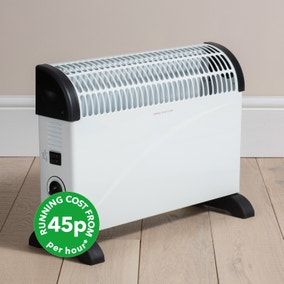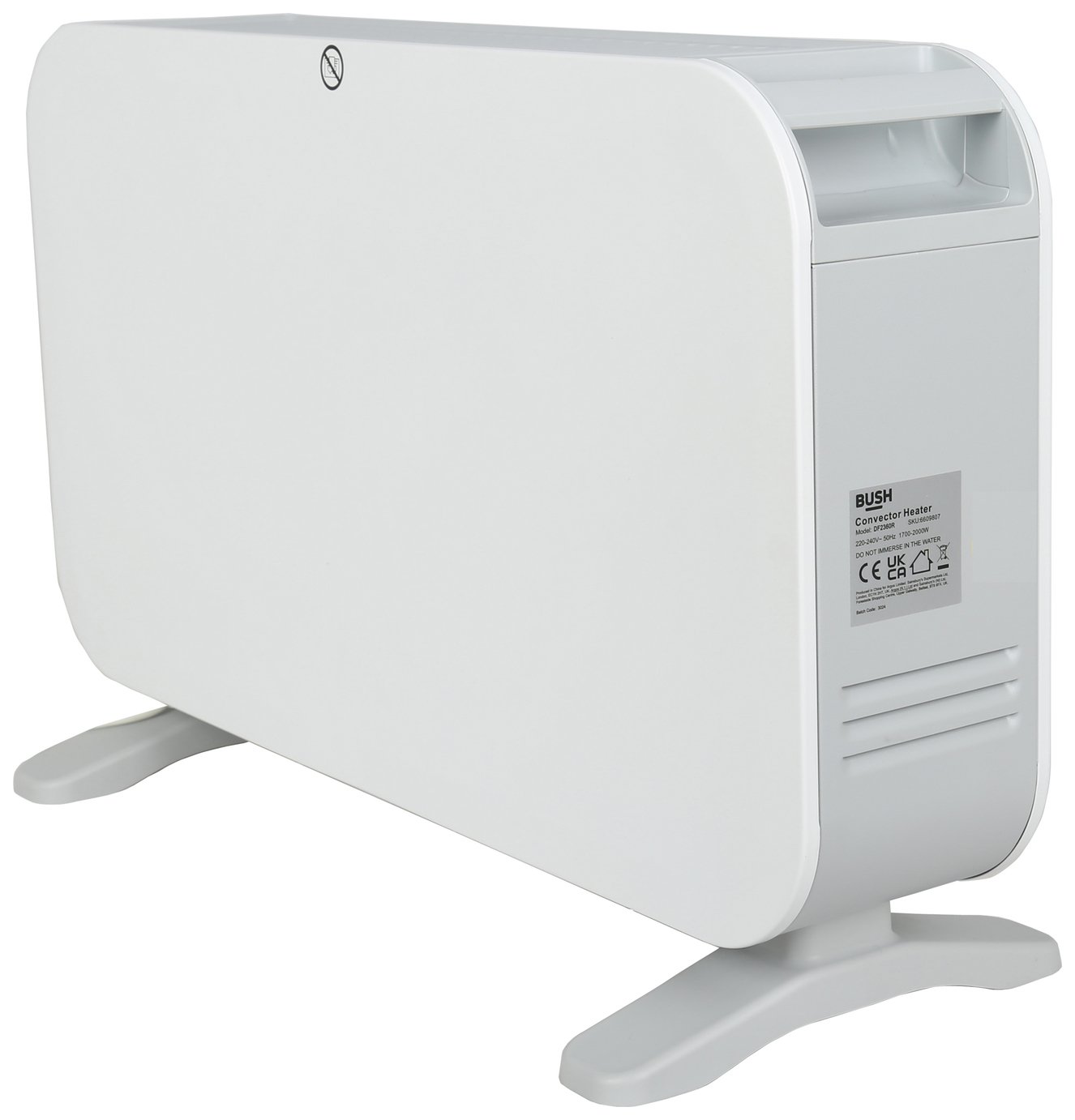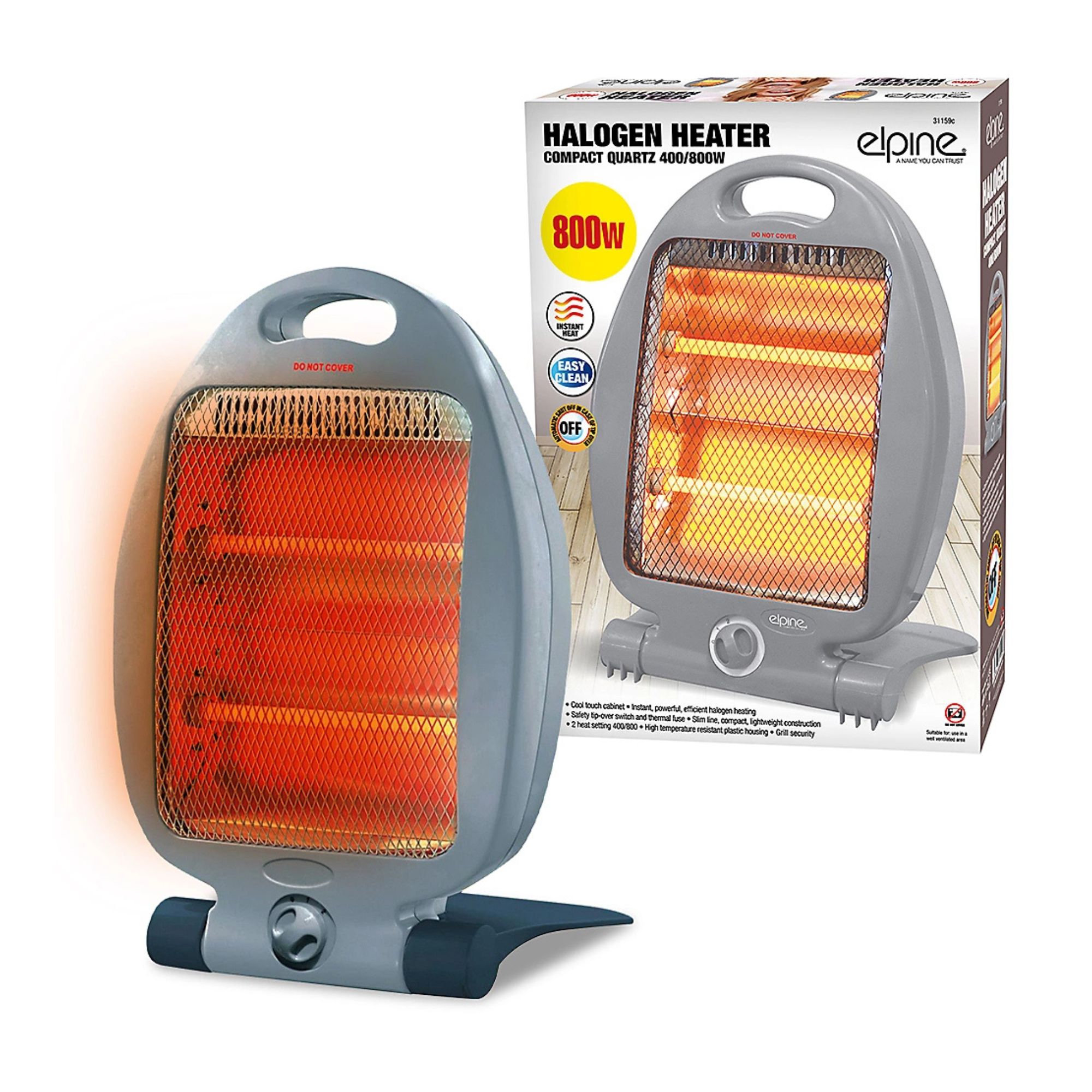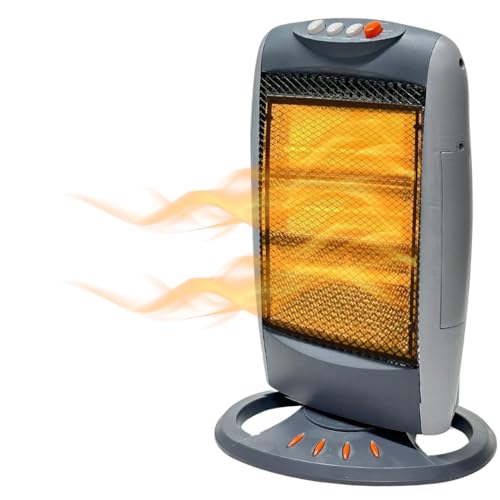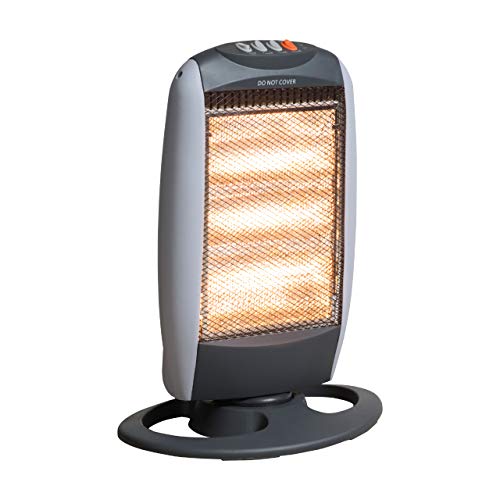What is the cheapest electric heater to run? I’ve compared all of the options, and this one is undoubtedly the most affordable
Experts debate the age-old question, and there's a clear winner for efficient home heating

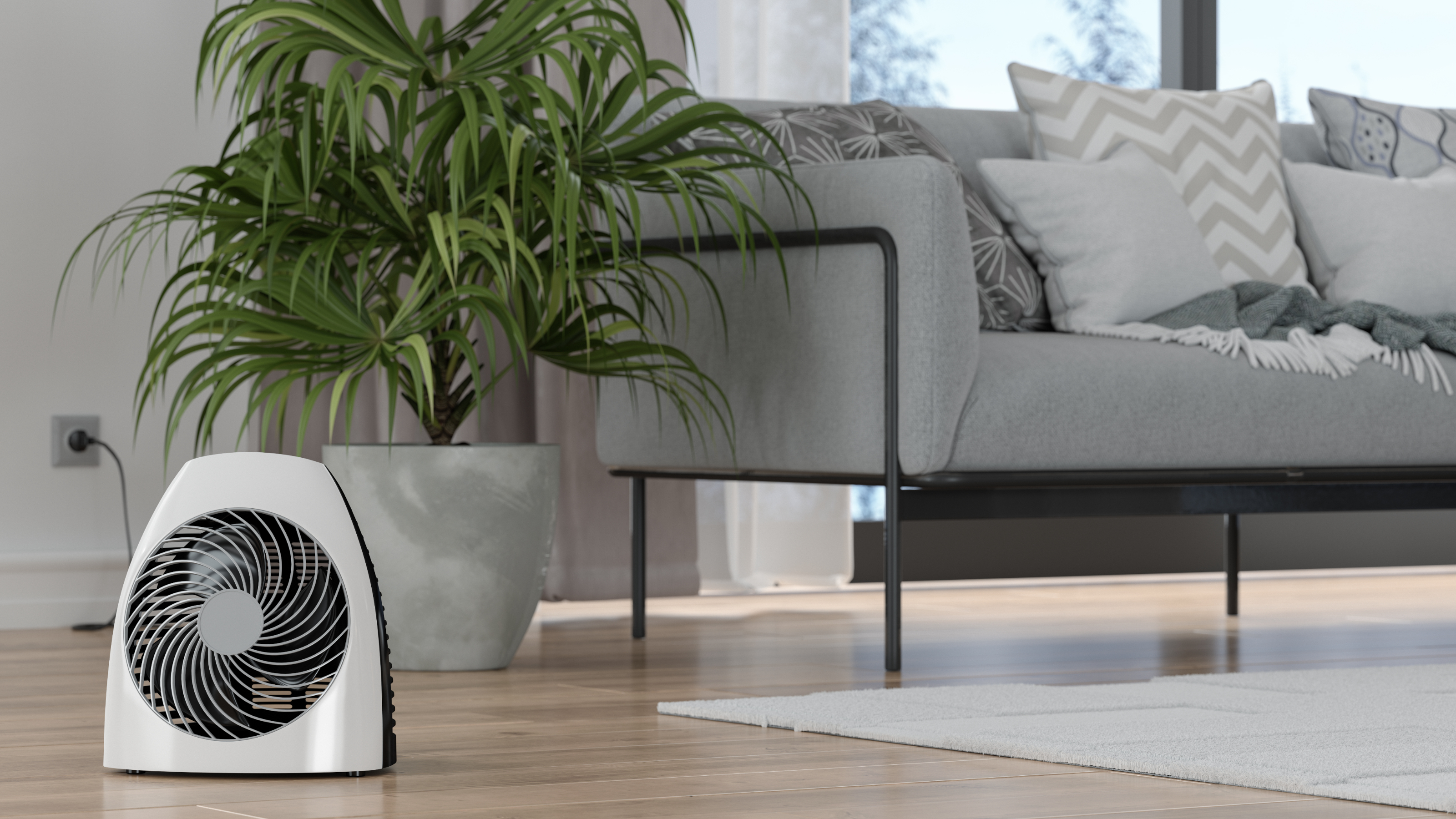
This article has been updated to reflect the January 2026 energy price cap
With energy bills on the rise now that temperatures are dropping, it’s no wonder that everyone finding the cheapest electric heater to run is one most people’s to-do list. After all, a cost-efficient electric heater can help you stay warm in winter without worrying about sky-high bills.
But while I can’t deny that the best electric heaters are an essential winter warmer, there are so many different types of electric heaters out there - from fan to halogen and even infrared. As well as looking and emitting heat differently, they also have varying running costs that can affect your monthly spending drastically. Based on current energy prices, however, I can confirm that halogen heaters are officially the cheapest type of electric heater to run.
But if you want to know more about how much it costs to run an electric heater, we've done the research and gathered expert advice so you can understand the running cost of each type. Here's to keeping your house warm this winter, in a cost-efficient way.
How to calculate the cost to run
We've calculated these costs based on the energy price cap as of January 2026, which is currently set at 27.69p per kWh for electricity. Alternatively you could use the figure stated on your energy bill, which may be lower than the price cap.
If you wish to calculate the cost of running a specific electric heater you either already own or have your eye on, you can do so by following these simple steps:
- Find the power of the heater in kilowatts (kW). This figure may already be stated in kW, but if it's displayed in Watts, you simply divide the wattage by 1000 e.g. 1200W is 1.2kW.
- Multiply the kWh by the price you pay for your energy, or the energy price cap (currently 27.69p per kWh until 31 March 2026). E.g. 1.2kWh used for one hour at this price would cost 33.2p.
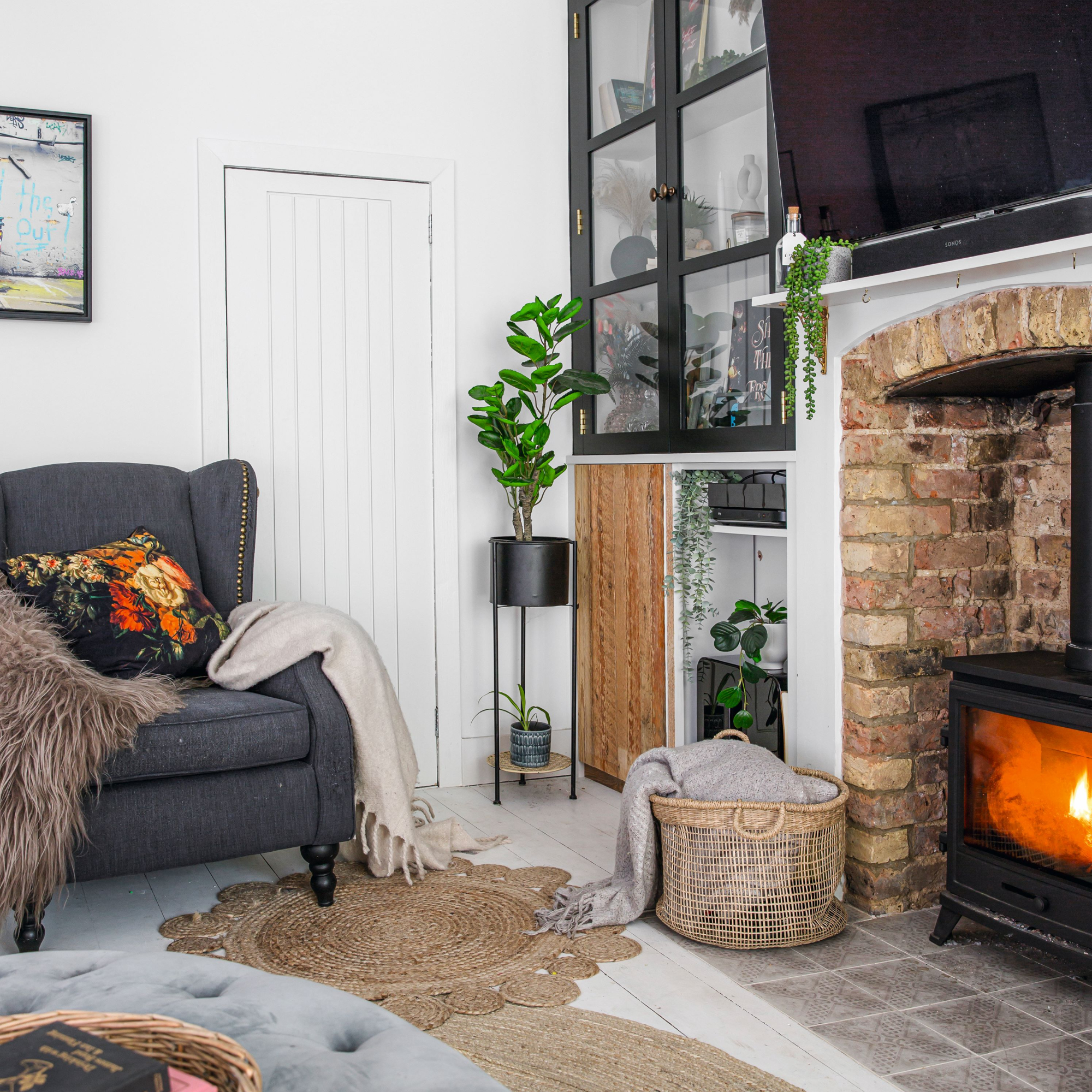
Once you know how much the electric heater costs to run for an hour, you can scale that up to see how much it will cost to be used for two hours and so on. And while you can use the above equation to work out an ‘official’ running cost, determining the cheapest electric heater to run ultimately depends on a number of factors - and this is one of the things everyone should know before buying an electric heater.
'The cost of running an electric heater depends on a few factors such as the type of heater from oil-filled to infrared heaters, its energy efficiency, electricity rates and how often you like to have your heating on,' starts Jess Steele, heating and technology expert at BestHeating.
Sign up to our newsletter for style inspiration, real homes, project and garden advice and shopping know-how
'The cheapest electric heaters are those that are most energy efficient, can retain the most heat and can effectively heat a room without using up loads of electricity.'
As such, here are different types of electric heaters you can expect to see on the market, and their cost to run.
Fan heaters
Fan heaters are probably one of the most common choices for an electric heater, with wattages ranging from 1000W to 2000W. However, most of the time 2kW is the most common you'll see, especially in more budget models. Per hour, a 2kW fan heater will cost roughly 55p when running on full power, as per the January 2026 price cap.
Typically, smaller desktop fan heaters - like the Russell Hobbs Retro Tripod Mini Ceramic Heater - are cheaper to run as they run at around 1.5kW, but larger, more powerful fan heaters like the Dyson Purifier Hot+Cool HP1 Purifying Fan Heater will be more expensive to run as they tend to run at around 2.2kW in heating mode.
Based on the more powerful models, you’d expect to pay around £2.44 per day if you were to use it for four hours a day to take the chill off your house. Across the whole week, you’re looking at just over £17 a week.
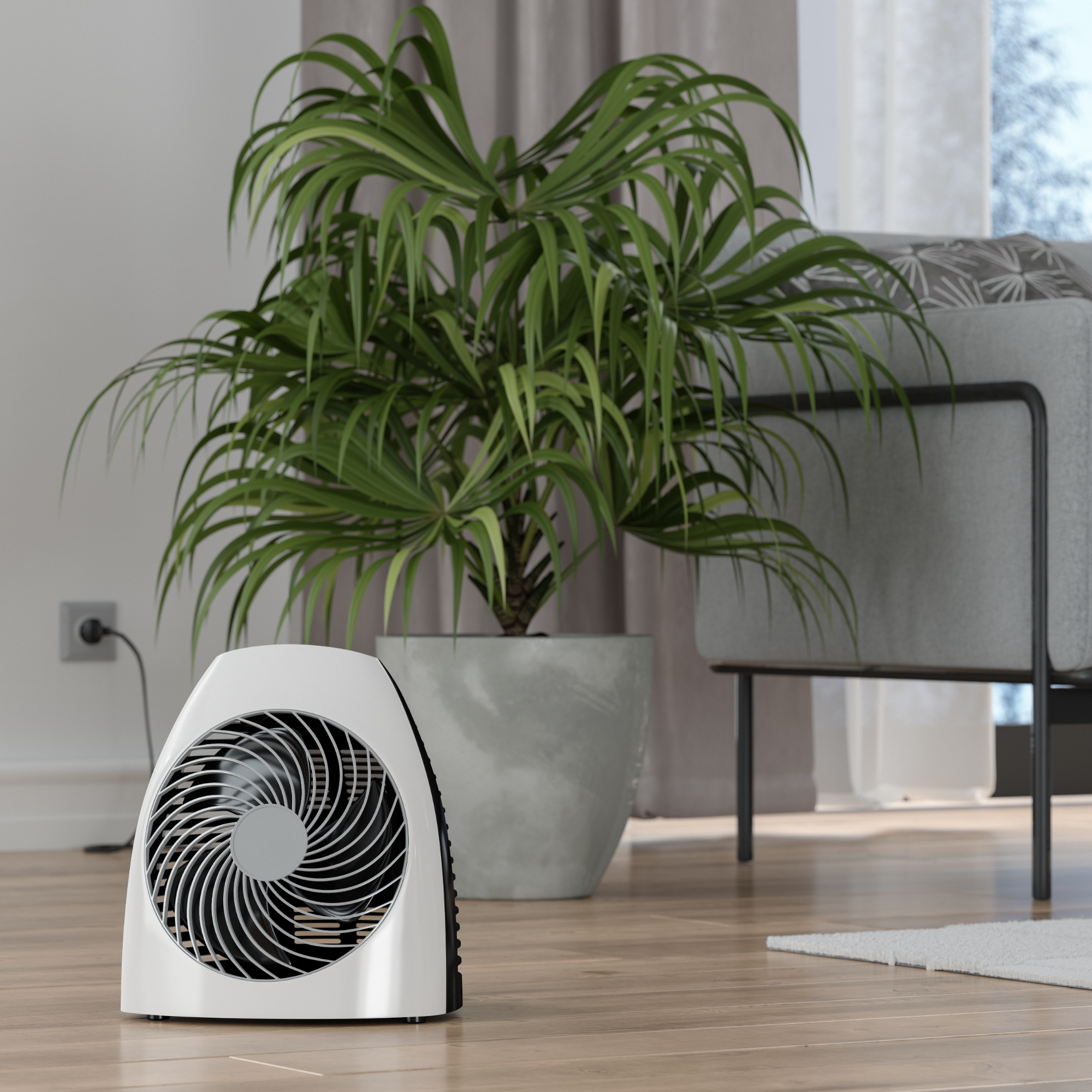
And while there are undoubtedly cheaper electric heaters to run out there, fan heaters are generally the most popular. This is largely because they are typically a lot lighter and easily portable. The oscillation angle and automatic tilting fan head are also designed to spread warmth across a 90-degree angle in each direction for an efficient distribution of heat around the room.
Many also use a mixture of fan power and ceramic heating, so you don’t need to choose one or the other in the ceramic vs fan heater debate.
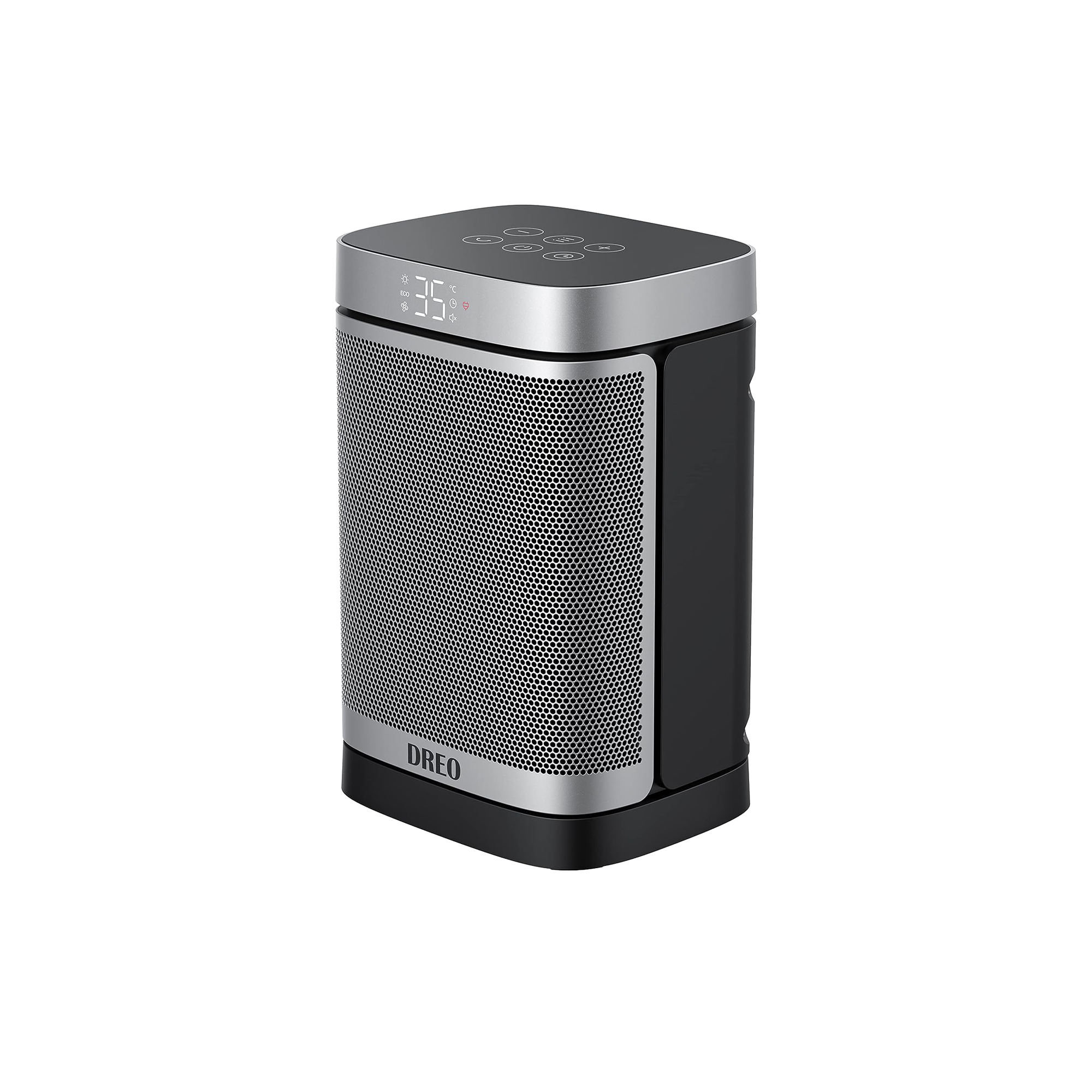
The Dreo fan heater is quick to heat a room, oscillates for good heat distribution, has three fan speed settings, and can maintain a temperature of between 5-35°C. It's also relatively affordable, compact, and easy to move around the home.
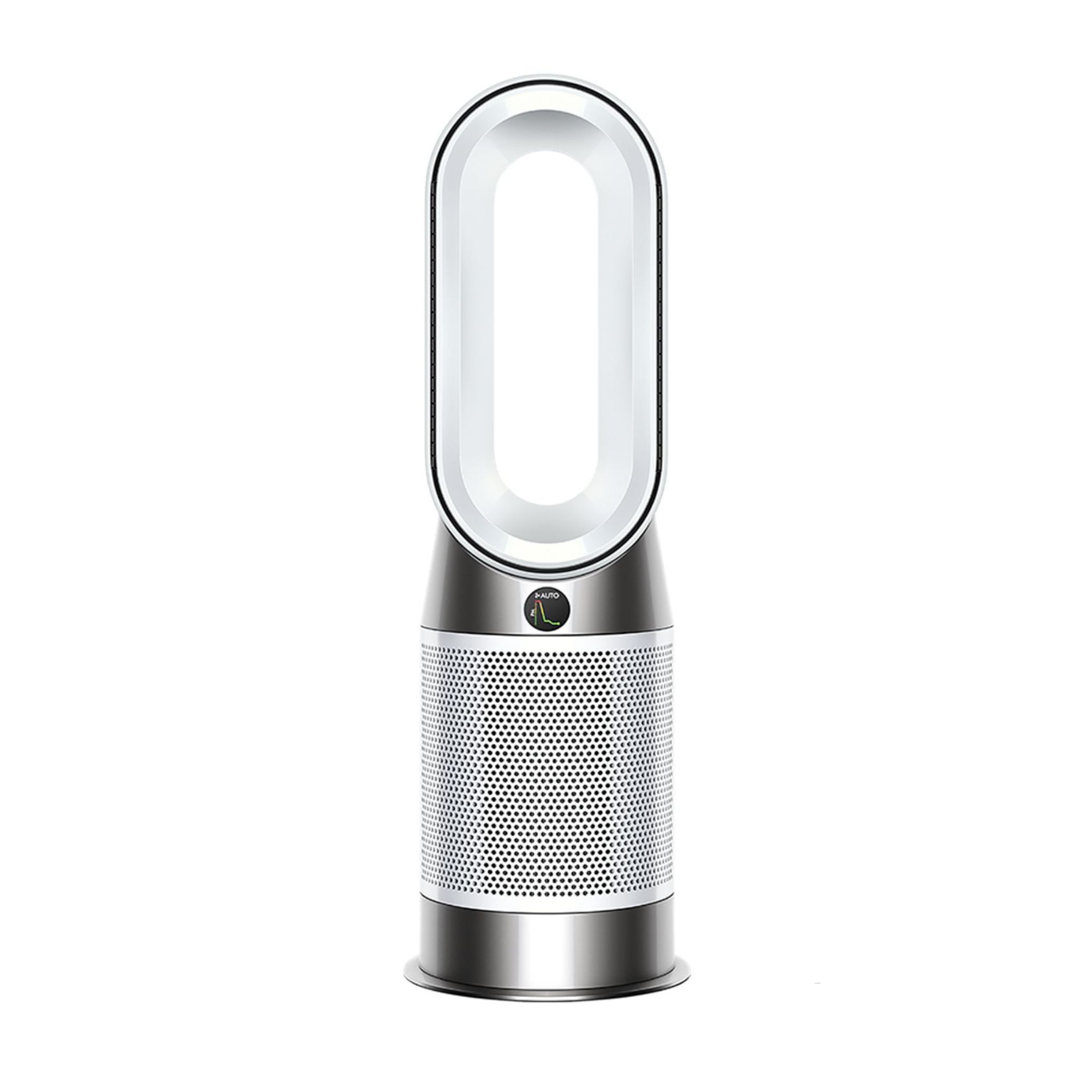
Serving as one of the best air purifiers and fans at the same time, this 3-in-1 fan heater is the ultimate multi-purpose appliance. It heats up immediately, and is both sleek and stylish.
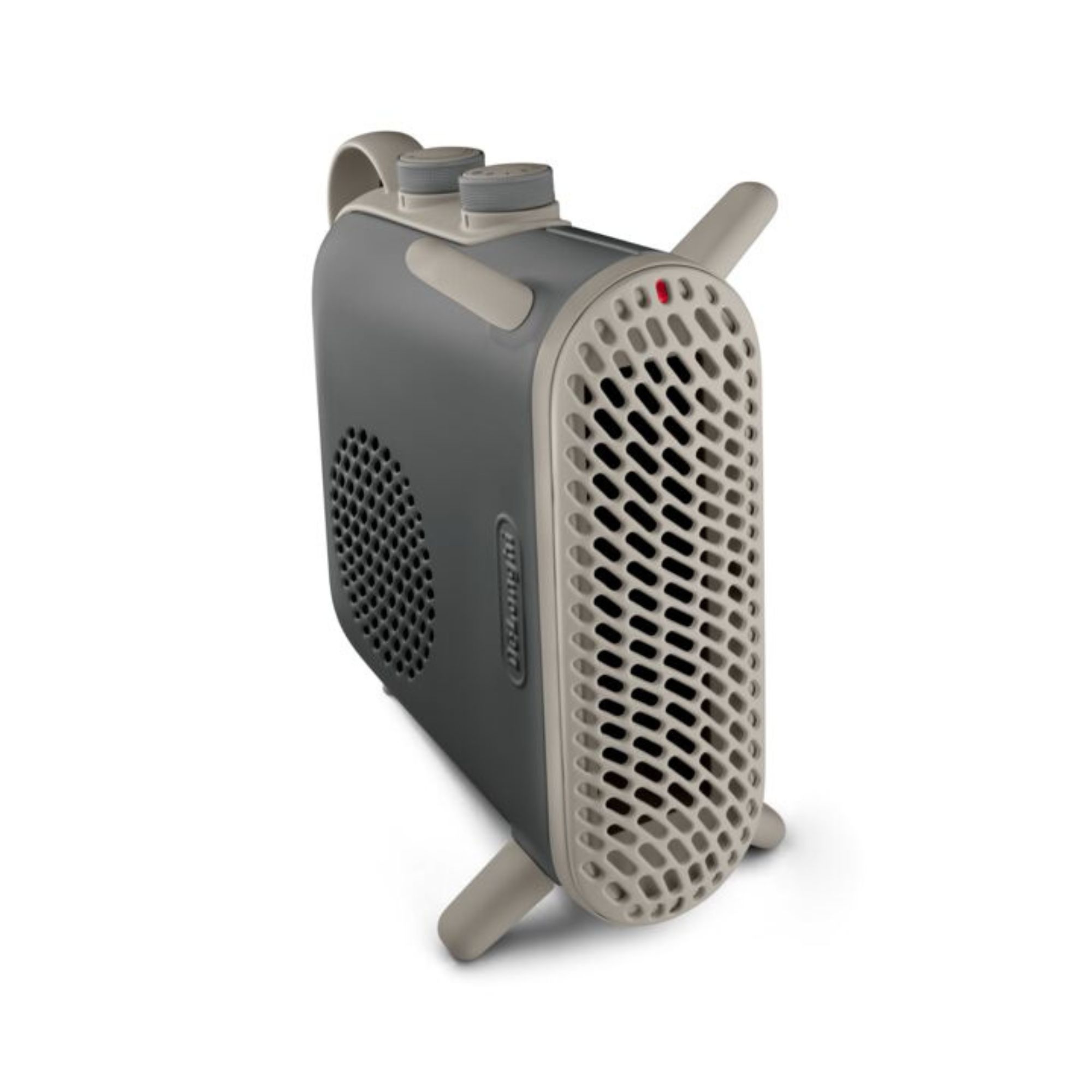
If you want something a bit more versatile, this fan heater can be used both vertically or horizontally. This allows it to fit into any space in your home, while also keeping it warm in the process.
Convection heaters
Typically, convector heaters have a wattage of around 2000W across the board. There are some low wattage models available, but a majority out there sport the 2kW power output with pride. In line with current energy prices, most convector heaters therefore cost around 55.4p per hour to run.
'Radiators, electric panel heaters and convector heaters work by creating a convection current in a room. As the hot air rises, it circles to the other side of the room, cools and sinks and travels back along the floor to the heater to be reheated again,' explains Jonny Samuel, buying manager at Ryman. 'They take some time to heat a room, but once turned off the heat lingers.'
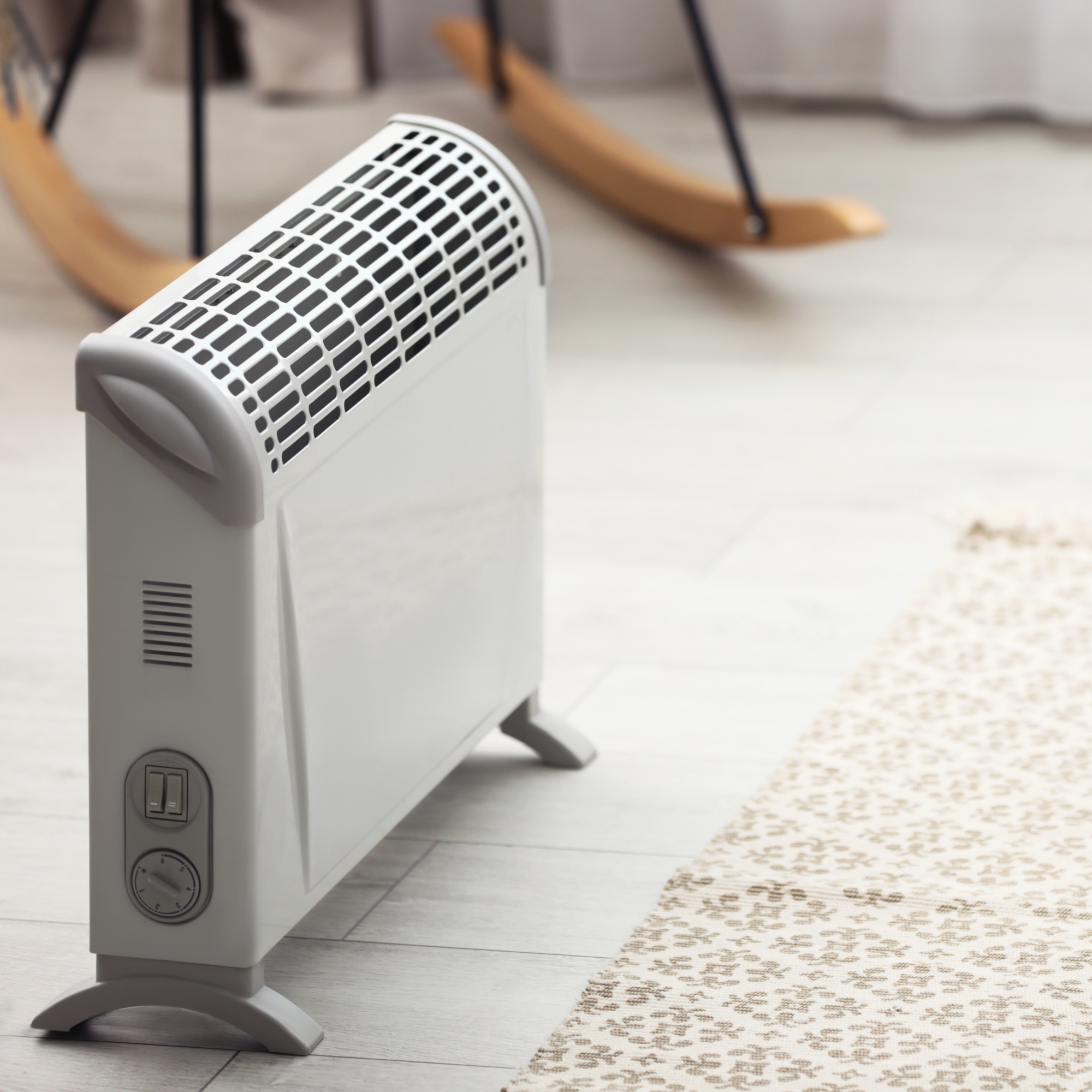
So, while the base cost to run a convector heater isn't the cheapest and you’ll need to run it a lot longer for it to eventually heat up, there's a possibility you get some bang out of your buck as the heat is retained long after it’s been turned off.
Of course, convection heaters are generally a lot larger than other heaters, which means that they can also heat larger spaces. This does mean that they take up a lot of space, though.
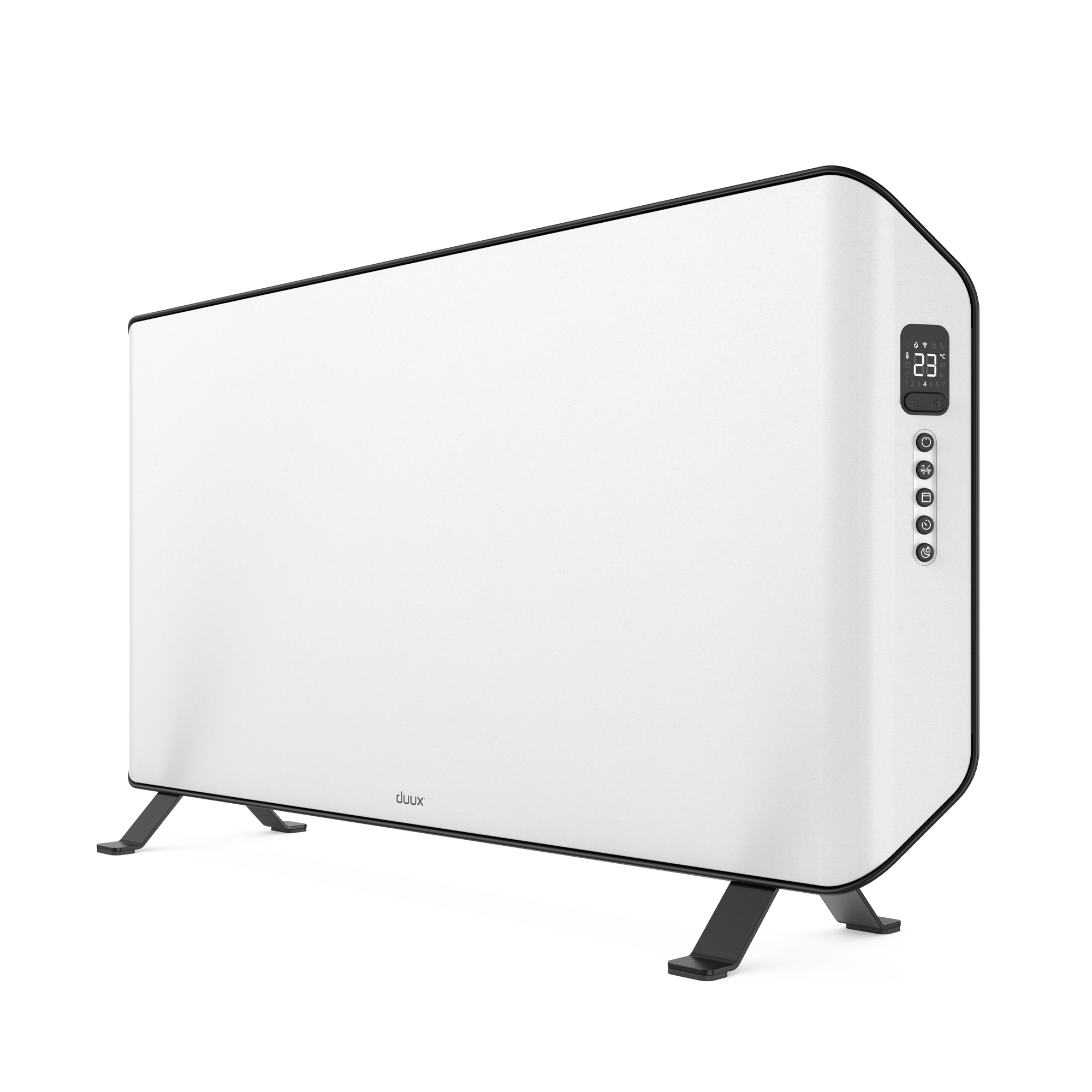
A convector heater is slower to emit warmth than a fan heater, but, its operation is silent, and its steady heat can be more economical if you have it running for long periods, or if you have a large room to heat. This heater is a cut above the usual electric convector, offering a stylish design and great functionality.
Halogen heaters
As a general rule of thumb, halogen heaters have a wattage of around 1200W. However, some models offer adjustable heat settings of 400, 800, and 1200W, meaning each setting uses around 0.4, 0.8, and 1.2kW per hour respectively. This undoubtedly makes them some of the cheapest electric heaters to run, and you can expect running costs of between 11p to 33p per hour depending on your desired setting.
'Halogen heaters prove the cheapest option and one of the best products when it comes to heating a room quickly,' explains James Longley, managing director at Utility Bidder. This is because halogen heaters are directional, allowing you to feel the heat instantly.
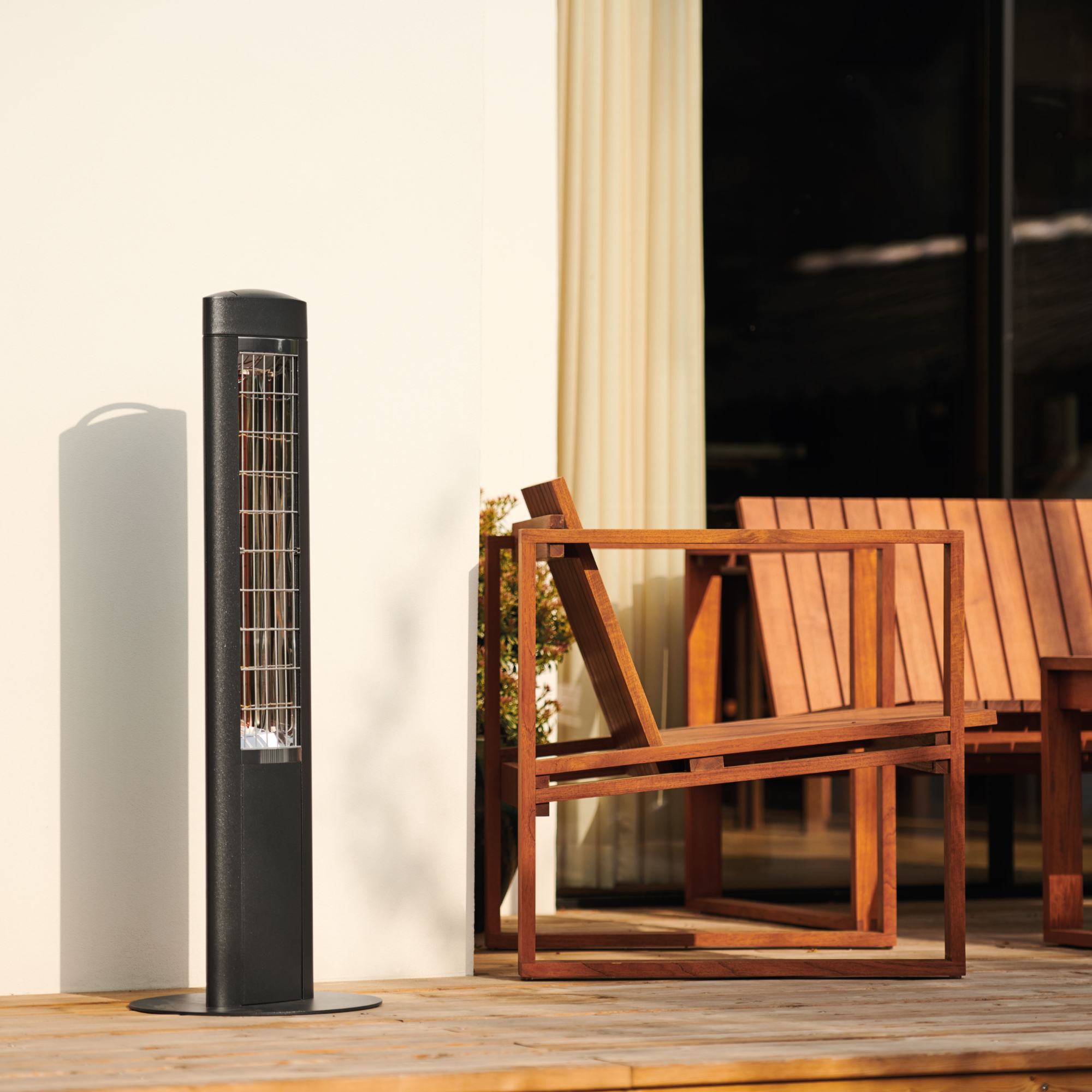
Martin Lewis has also agreed that halogen heaters are a recommended source of warming your home this winter, as they are the cheapest to run. Amazon's best seller, the Beldray Oscillating Halogen Heater has over 1,000 positive reviews and is extremely affordable at just £27.99.
In fact, the affordable upfront cost and the affordable running costs is what makes halogen heaters so enticing. However, their directional heat output means that they struggle to heat full rooms and they do pose a slight safety risk due to how hot they get.
Jonny Samuel at Ryman also says, 'As soon as you turn them off, the heat quickly dissipates.'
Oil-filled heaters
The wattage of the best oil-filled heaters can range anywhere between 500W to 2500W, with its kWh ranging between 0.5 to 2.5kW per hour. This means that the cost of running an oil-filled heater can fall between 13.8p and can reach as high as 69.2p per hour, depending on the specific model and setting you use.
Of course, the bonus of oil-filled radiators is that they have been proven to be very energy-efficient, quiet, and safe for households with children and pets.
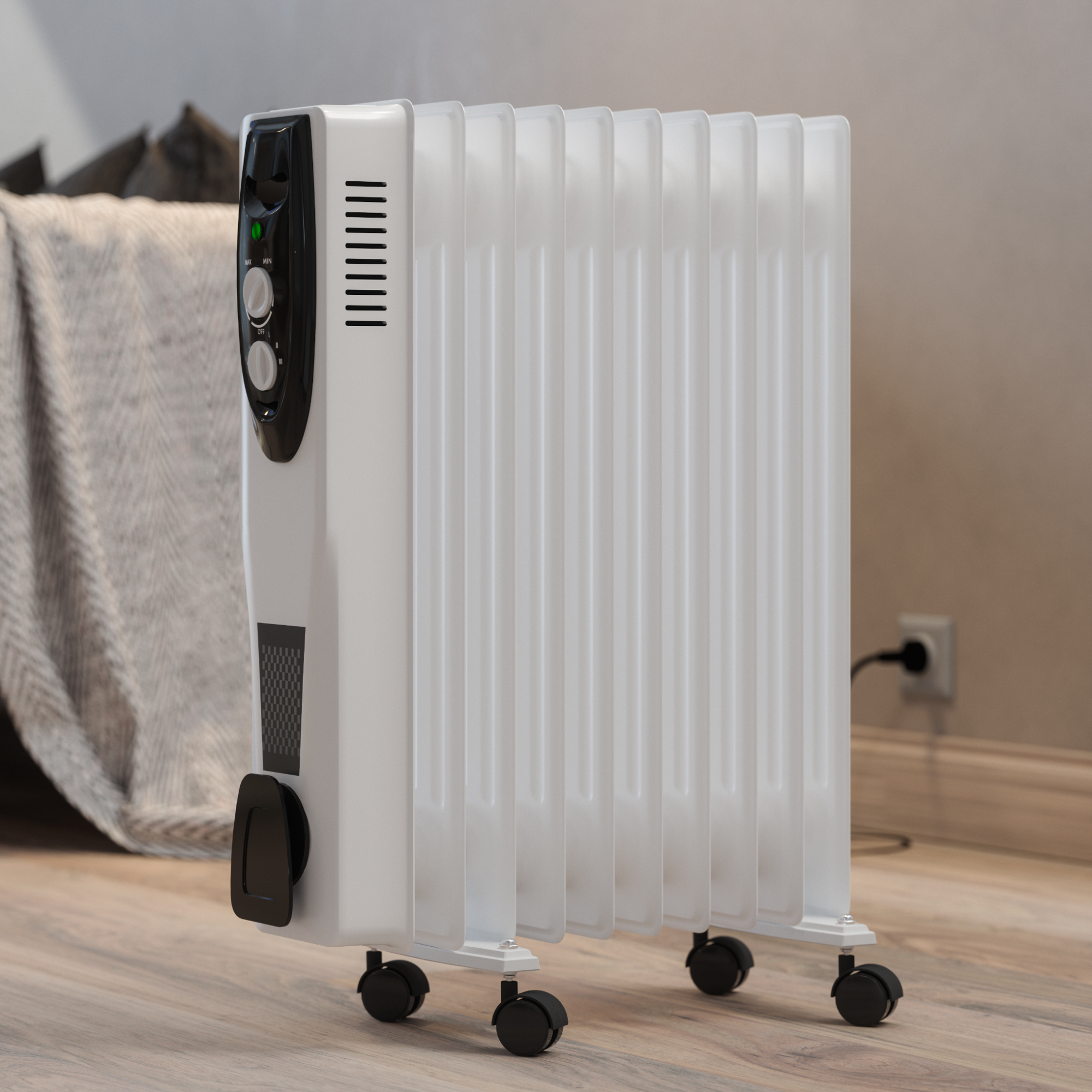
'Oil-filled heaters are one of the cheapest options as they are great at retaining heat even after being turned off, meaning you spend less heating up the room. They provide a slow and steady heat that can be cost-effective,' assures Jess at BestHeating.
Although prices can go up to almost 70p per hour, this still works out cheaper than the cost of running central heating for an hour. And if you want to keep costs down, you do have the option of buying one with a lower wattage - and you’ll still be able to reap many of the benefits.
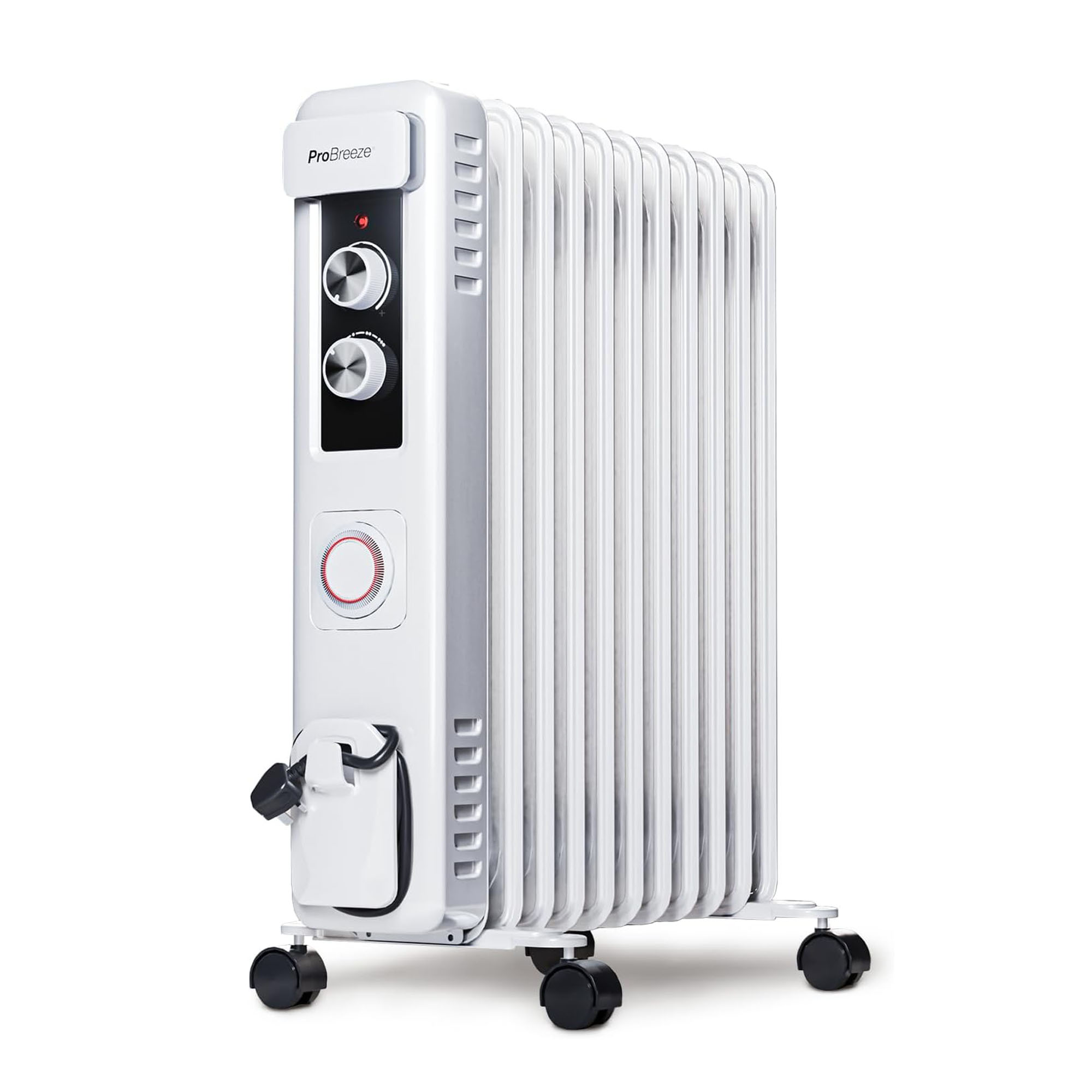
Crowned the 'best overall' oil-filled radiator in our guide, this model comes in at 2.5kW and makes fast work of heating a large space without costing a fortune in the process.
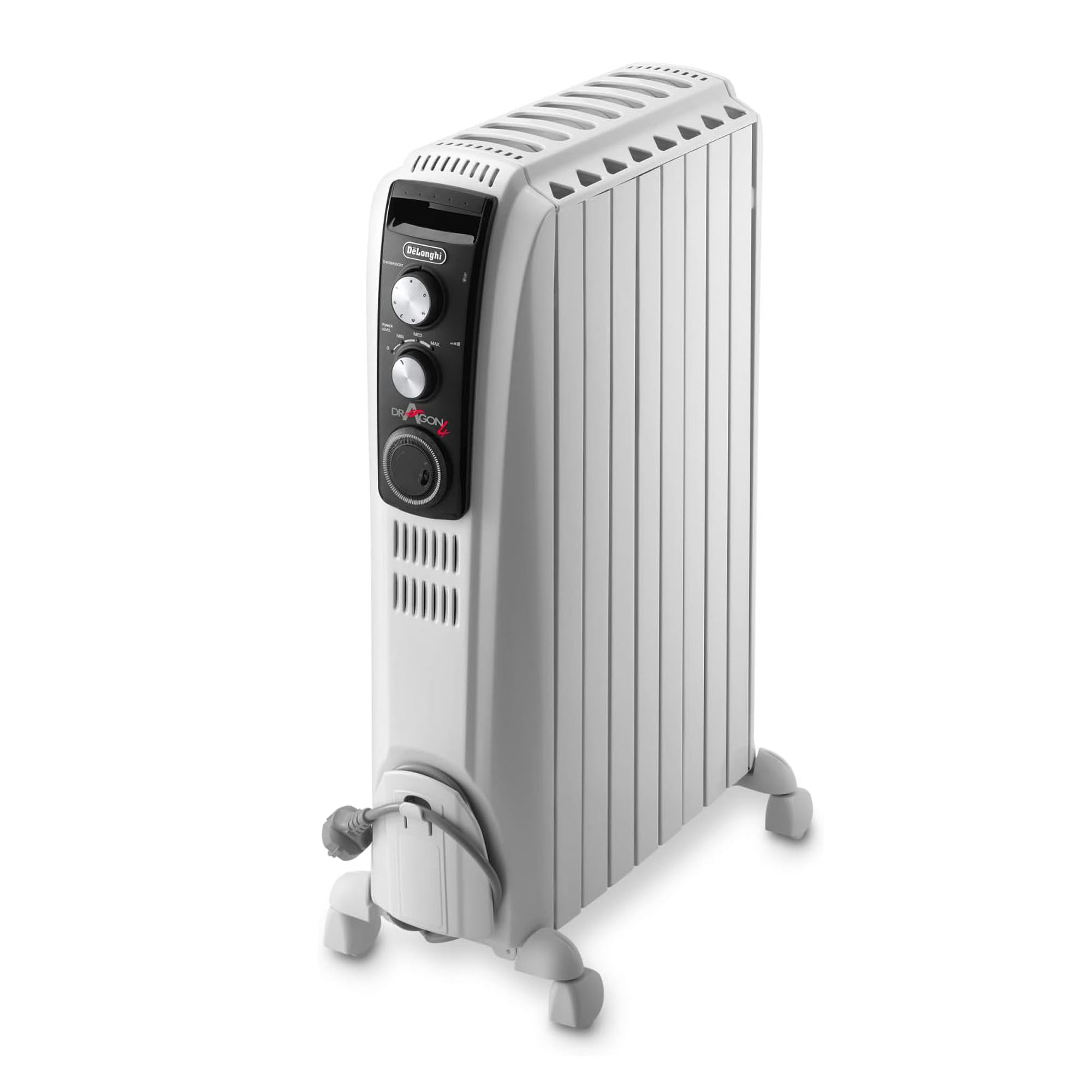
Sleek and stylish, this oil-filled radiator is also extremely powerful and suitable for rooms of any size. It also comes with three heat settings so you can tailor the heat (and the cost) to your requirements.
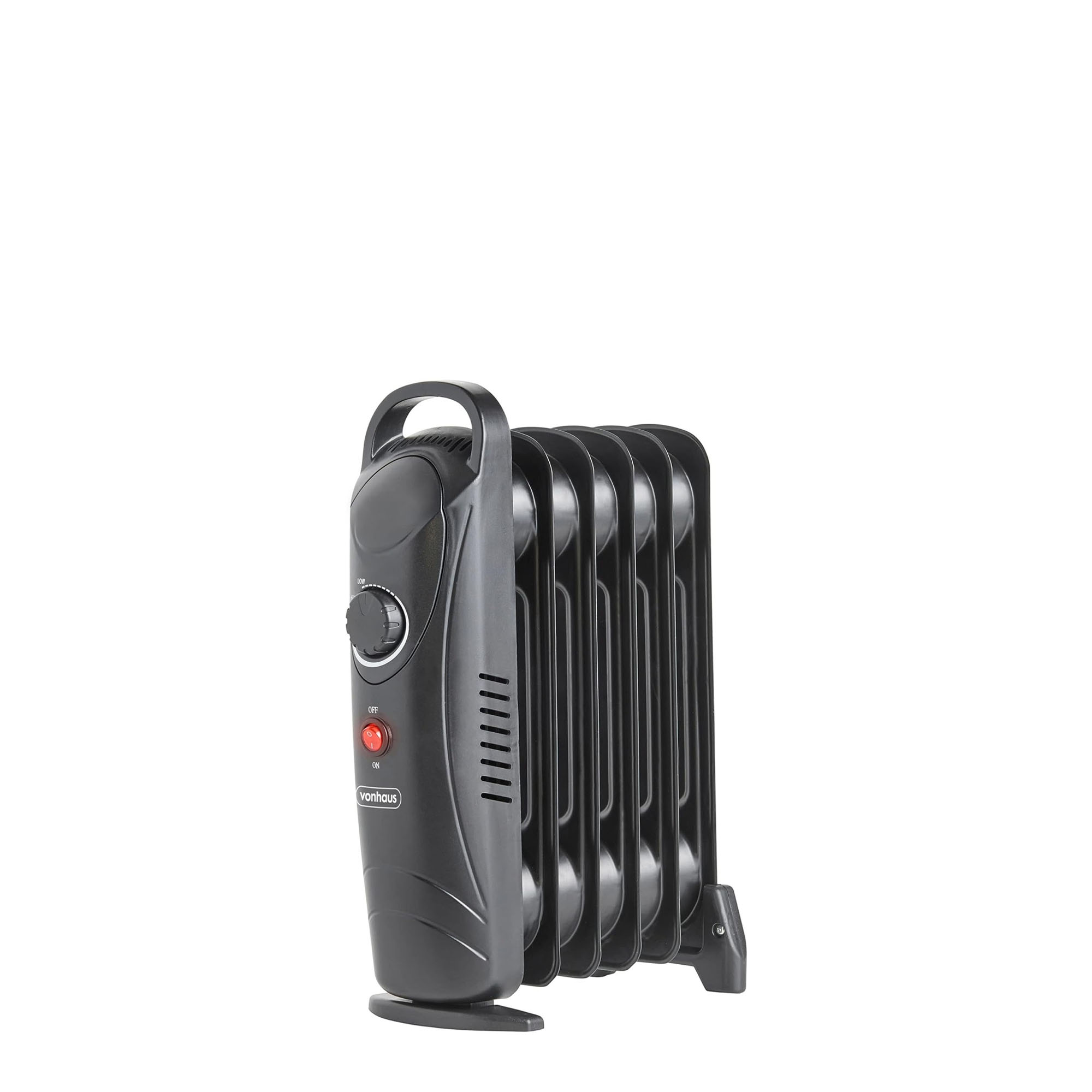
If you have a tighter budget, this is a more affordable oil-filled radiator. It only has one heat setting, but that heat setting is very low and will therefore make it one of the cheapest electric heaters to run.
Infrared heaters
Infrared heaters aren’t the common electric heater choice for UK homes, but they definitely do have their perks. In fact, many people find the feeling of them to be extremely pleasant, and in many cases electric heaters can use a combination of infrared with another type of heating method - like the 5-star rated AENO Premium Eco Smart Panel Heater, which uses a combination of infrared and convection.
'Infrared heaters produce heat that is a product of invisible light. This is done by converting electricity into radiant heat,' explains James Longley at Utility Bidder. 'This heat is effectively the same heat feeling we would get from the winter sun, and an infrared heating panel would commonly be visualised as being a long panel with radiant orange light.'
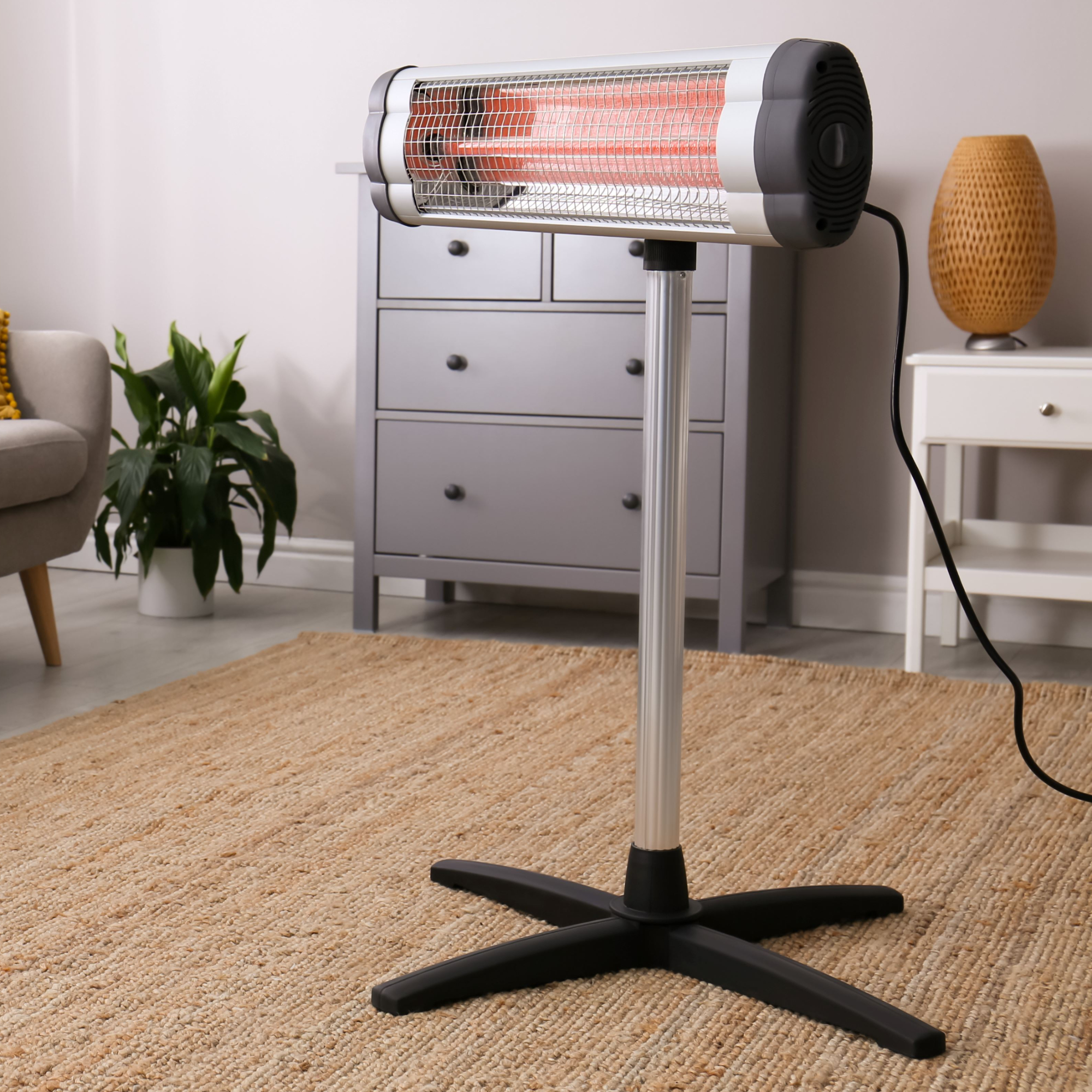
Generally speaking, infrared heaters are considered cheap(ish) to run. They hold a wattage of anywhere between 900W to 2000W, depending on whether you opt for infrared heating panels or something more akin to an infrared patio heater. Therefore, the cost to run can range from 24.9p to 55.4p per hour.
James continues, 'With this in mind, infrared heaters can be used as heating solutions for the whole home, or simply as a conventional heater to keep an immediate space warm alongside your home's central heating system.'
If you want to implement infrared heating in your home as a regular system, infrared heaters panels are easy to install and commonly appear in size and shape like a flat-screen TV mounted on the wall. These panels are available in lower wattages but will ultimately work for longer in the day.
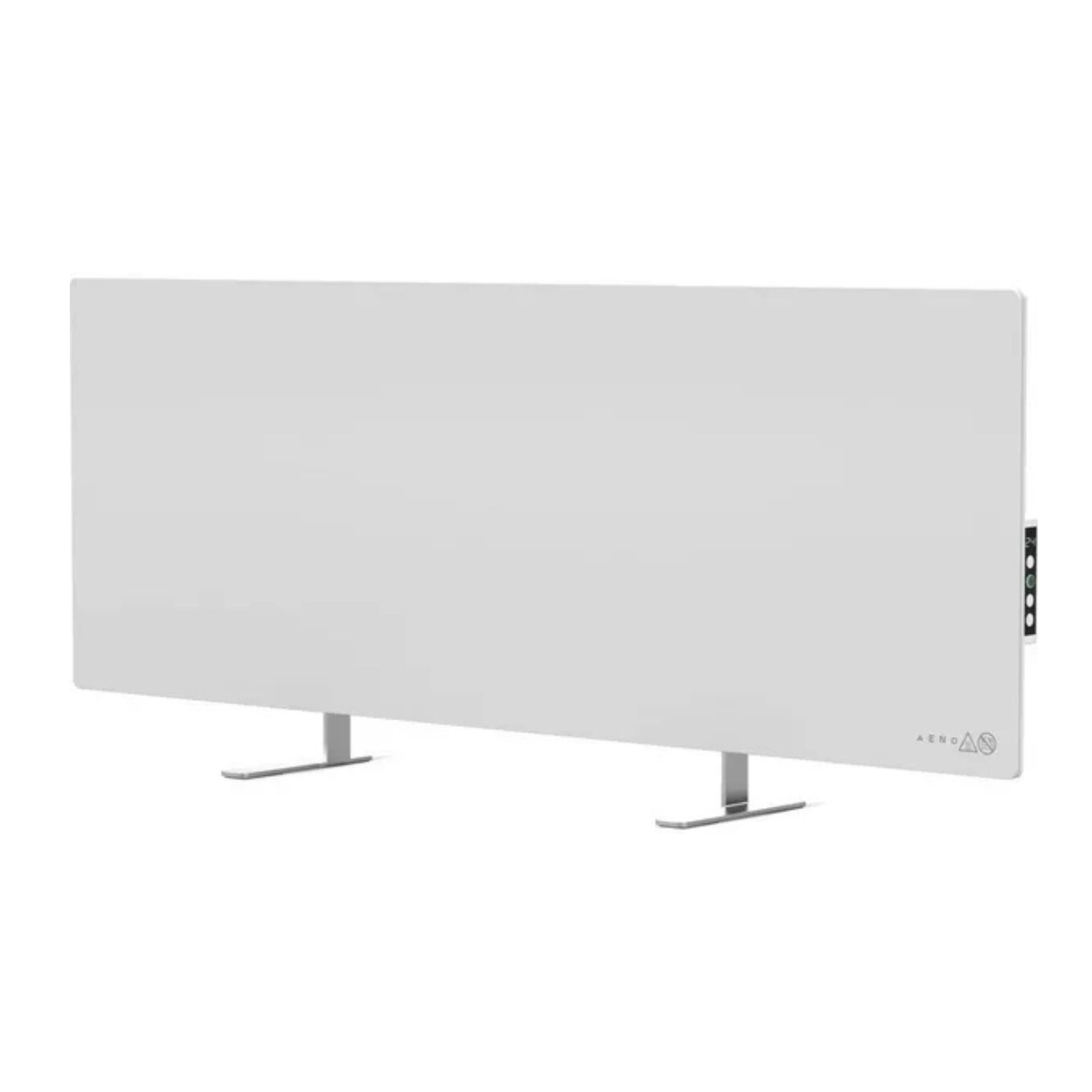
This electric heater has been crowned the 'best overall' in our guide, as it's both stylish and effective. It's also extremely energy efficient, allowing you to heat a large room without spending too much money.
The verdict: what is the cheapest electric heater to run?
The verdict is in and we can say that in considering both the cost to run per hour as well as how quickly you can expect to actually feel warm, a halogen heater is the cheapest electric heater to run. Not only are halogen heaters cheap to run, but they are effective at getting the job done, so we think that investing in this type of electric heater this winter will ensure you the best value for money.
However, it is worth noting that even the electric heater with the lowest running costs will eventually rack up your bills with prolonged use. And it’s best to avoid any electric heater buying mistakes to ensure you’re not going to unnecessarily spend more money than you need. However, just be warned that where you place an electric heater can impact the running costs.
If you're looking for extra ways to save energy this winter, it's worth looking at how much you pay for your gas and electricity. You might be able to save money by switching to a cheaper tariff or supplier. Use a price comparison website like Go.Compare to see whether you can save money by switching.
FAQs
What is the cheapest way to heat a room using electricity?
While halogen heaters are the cheapest electric heaters to run, the cheapest form of heating ultimately comes down to your home's heating needs. 'The consensus is that the most effective product for you all depends on factors such as electricity rates, efficiency, and your overall usage,' James from Utility Bidder summarises.
The different types of electric heaters work differently, so some of them are better at heating up entire rooms, while others are more efficient for heating up specific areas.
'Halogen heaters are the cheapest, as long as you opt for a model that has the low, 400W heating setting,' Nicholas from Trade Radiators says. 'They're great for heating small, targeted areas such as one room, although you'll need more to heat a whole home.'
If you are wanting to heat the whole house with electricity, Nicholas recommends convection heaters. 'They're great for prolonged use, and will keep heat in the room for a short while after they're turned off, in comparison to fan heaters which generally stop showing any signs of heat as soon as they're turned off.'
Can outdoor halogen heaters be used indoors?
Heaters designed for outdoor-use should never be used indoors, and outdoor halogen heaters are not designed for installation or use in bedrooms, living rooms or any other space, since they are not suitable for being used all day long.
There are plenty of indoor halogen heater options available now, and some of them are really budget-friendly. The Warmlite 3 Bar Halogen Heater is £18.99 on Amazon, and has a 4.1 star rating out of over 1,600 reviews.
Are halogen heaters cheaper to run than fan heaters?
The answer is, yes, halogen heaters are cheaper to run than fan heaters, as they give off less heat, therefore using less power. This is because there are low-wattage models available in halogen heaters, with some devices using as little as 400W. Fan heaters on the other hand tend to be around 2000W (though, if you're opting for a higher-wattage halogen heater, there will be little difference).
So, there you have it! Now you know the cheapest electric heater to run.

Jullia was Ideal Home’s Junior Writer from 2022-2024 and the Ideal Home Certified Expert in Training on Vacuums having spent over 60 hours testing different models. She’s always loved all things homes and interiors, graduating with a bachelor’s degree in Architectural Studies from the University of Nottingham where her love for writing blossomed following her internship at ArchDaily. Now focused on home tech and cleaning, Jullia works on writing features and explainers to help people make the most of their home appliance investments, putting the newest launches through their paces. When she isn’t writing, she loves exploring the city, coffee shop hopping, and losing hours to a cosy game or book.
- Lauren BradburyContent Editor (House Manual)
- Katie SimsContributor
